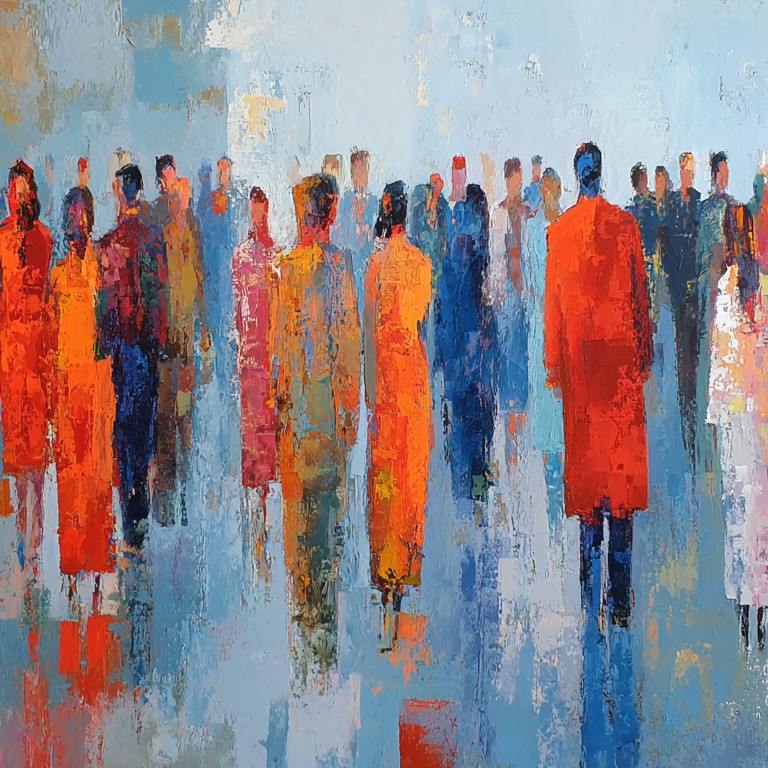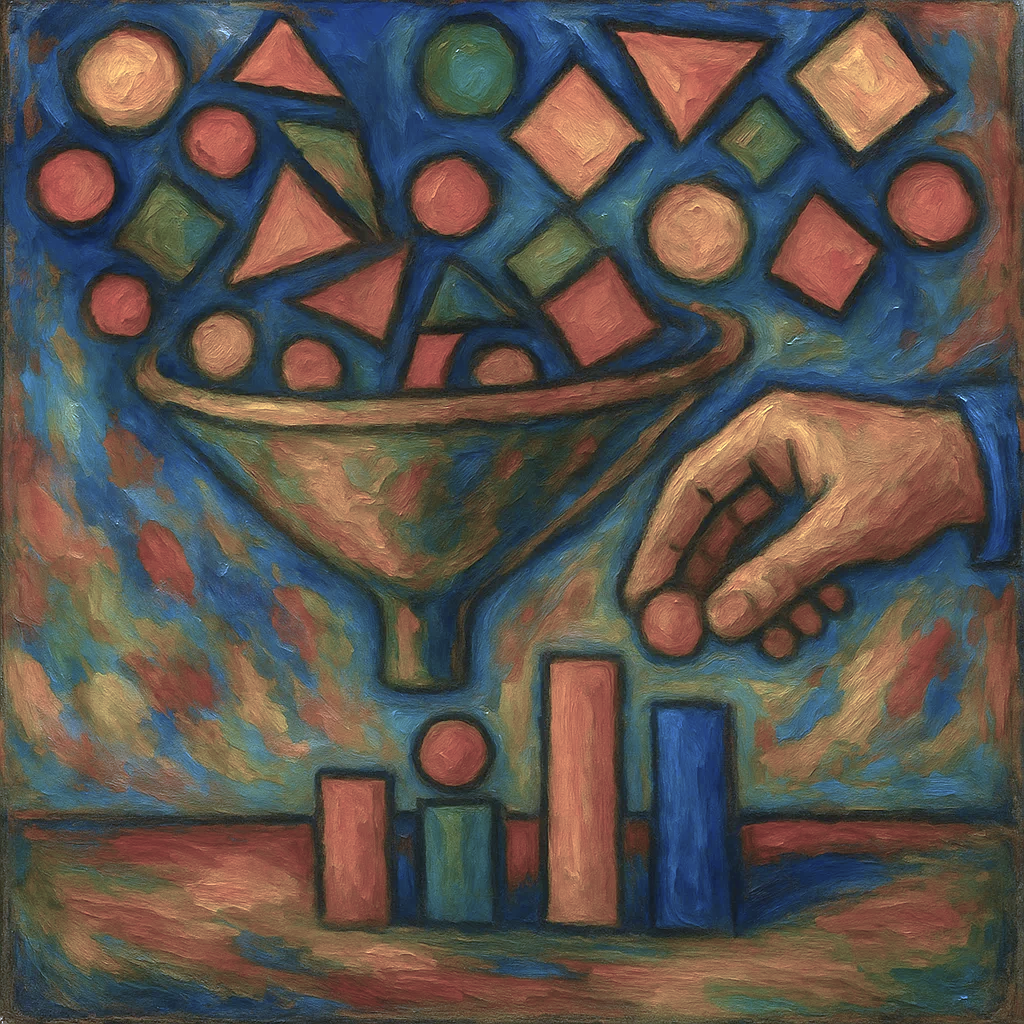Will the MDG falter in the fight for locally led development?
The Minister of Development will strengthen civil society in developing countries through Norwegian organisations. At the same time, the MDGs programme committee has proposed rejecting the proposal on locally led development, which will be debated and voted on at the party's national meeting on Friday.

Ki-generated illustration from Sora
Main moments
Support for locally led development through Norwegian organisations is a big paradox, many would say. It is well covered in a thing in Panorama. The proposal smacks of political risk aversion and a desire to make Norwegian organisations happy. Unfortunately, it undermines the principles of locally led development, ownership and equality.
Locally led development is a key principle in modern aid. Sustainable solutions are created when power, resources and decisions lie with national and local actors. Norway has long supported this principle in words, but so far no action has been taken.
Not only Aukrust struggles to consistently follow this principle. In the Green Party (MDG), of which I myself am a member, the programme committee now proposes to reject a proposal to prioritise locally-led development in Norwegian aid.
This goes against the party's programme of principles which states that decisions should be made close to those affected, a principle that apparently will not apply to people in the global south, if the proposal is rejected at the national meeting.
Labour (Labor) and the MDG are not alone in downplaying the importance of locally led development. No party, except the Christian People's Party (KrF), shows a real willingness to prioritize national and local ownership in aid. Despite lofty ideals, this remains a blind field in Norwegian development policy.
Don't get me wrong: Norwegian civil society organisations do important work, and work extensively with local partners in the south. But if we do not shift power, money and decision-making authority to national and local actors, we will fail both those we are supposed to support and our international commitments. This applies, by the way, to the whole of aid, not just to support for civil society.
Already in 2016, Norway committed to channel more support to national and local actors through The Grand Bargainstatement. The same ambition is underpinned by the OECD's Development Committee (DAC) principles, and was most recently confirmed in the United Nations Peace Agenda, The New Agenda for Peace.
Nevertheless, local actors receive minimal Norwegian aid directly. This policy says, in effect, “We don't trust you.”
Control needs disguised as accountability
Terms such as “risk management” and “reporting requirements” are often used as an excuse to maintain control in the North. Risk aversion has become a spinal reflex in aid. But there are ways to reduce risk without depriving governments and communities of the opportunity to lead.
Increased funding and technical support for players with good results can be linked to measurable results. Where there is a lack of competence, competence can be strengthened over time.
Transfer of responsibilities can occur gradually through incremental processes in which small projects are expanded according to the ability of local actors. Pilot programs can test solutions before full-scale implementation. Equal partnerships are another possible model.
Digital tools also make it easier to ensure accountability and control from the donor (often Norad). Digital payment systems can reduce abuse, and online platforms can provide real-time data on results available to the public. Capacity building through institutional support and technical assistance strengthens civil society's ability to monitor government. Targeted anti-corruption programmes can supplement this.
All this shows that control and local leadership can be reconciled, if one really wants to.
Norway has an opportunity to be a pioneer country for locally led aid. At a time of increased gaps between needs and resources due to major global cuts, it becomes even more important than before to reform the aid architecture. More locally-led development is essential, not just because it's right, but because it works.
More effective aid requires us to shift power and funds to those who know reality best. Norway should lead by example and show that solidarity means trust, ownership and local action. But then we have to turn words into action. It notably includes Development Minister Aukrust (Ap), but also political parties such as the MDG.
Not changing is the biggest risk
Corruption fears of locally led development overlook the risks of not changing anything. This includes contributions to aid dependence, inefficiency and lack of anchoring. It also risks young change actors in the south losing confidence.
We cannot continue with aid that implies that actors in developing countries cannot make good decisions for themselves. It should no longer be acceptable to prioritise Norwegian organisations without evidence of better results, or to lock in Norwegian aid funds and calls for them, as we do today.
We are at a crossroads. Either we dare to let go of donor-driven thinking and support forces in the south who know where the shoe presses, or we carry on as before, with less credibility and greater distance between words and action. Future aid should be nationally and locally led.
If Norway is to be a relevant player, politicians must act accordingly. The MDG has the opportunity to lead the fight for fair and solidarity assistance. I therefore hope that the National Assembly will agree to strengthen locally-led development, and that Aukrust will follow suit.
More from Langsikt

Input to the strategy for Norway's cooperation with the World Bank
Norway should see its cooperation with the World Bank, particularly IDA, as more than an aid tool - it should be part of our long-term strategy to contribute to a stable and resilient world with less inequality and less poverty. Here are nine inputs on how.

Norwegian aid can accomplish much more if it is prioritized correctly. Here are suggestions on how
Below are two proposals for structural measures in the aid budget, and then two concrete budget amendments that can save free up room for action for new initiatives (a total of NOK 1 billion in 2026).

Input to Development Minister in Light of Global Aid Cuts
Global aid cuts must have consequences for Norwegian priorities.

The death of the aid percentage: An analysis of what Norwegian aid goes to
Never before has the share of Norwegian aid going to poverty reduction and development been lower.